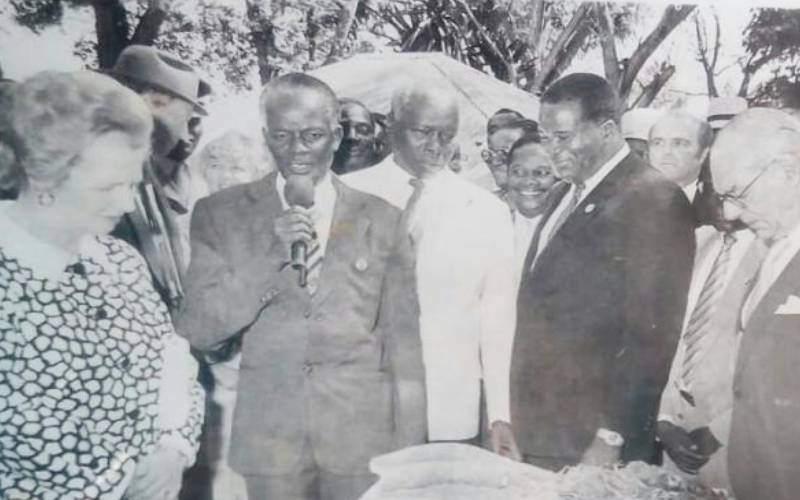×
The Standard e-Paper
Smart Minds Choose Us

Rt Hon Margaret Thatcher, Nabongo Japheth William Wambani Rapando, President Daniel Moi, Robert Ouko (partly hidden), Nicholas Biwott, Wlijah Simiyu Mwangale, Michael Glassford, Dennis Thatcher.
Patrick Rapando Wambani recalls that sunny morning on January 6, 1988 when Shinda Town in Mumias, Kakamega County, hosted two high profile guests.